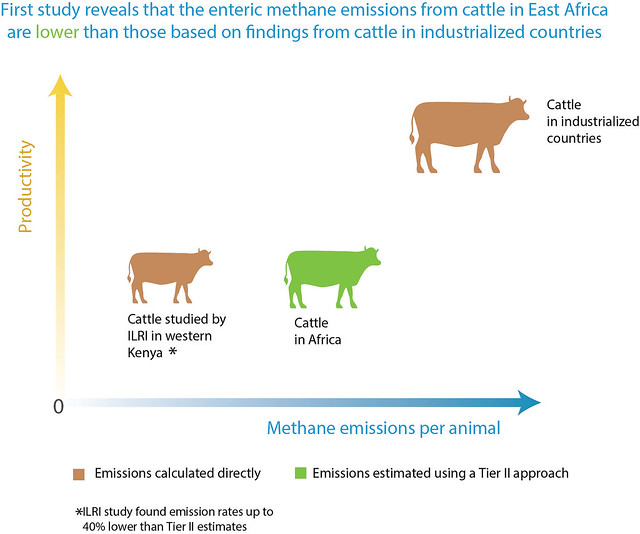 Livestock contribute greatly to livelihoods and food security in Africa, yet they are both vulnerable to climate change and a major contributor to greenhouse gas (GHG) emissions, a known driver of climate change. Climate change is expected to alter the quantity and quality of available animal feed and impact livestock directly through increased heat stress, changes in water availability and a greater range of livestock diseases. And higher levels of poverty in Africa exacerbate the effects of GHG-induced climate change on vulnerable populations.
Livestock contribute greatly to livelihoods and food security in Africa, yet they are both vulnerable to climate change and a major contributor to greenhouse gas (GHG) emissions, a known driver of climate change. Climate change is expected to alter the quantity and quality of available animal feed and impact livestock directly through increased heat stress, changes in water availability and a greater range of livestock diseases. And higher levels of poverty in Africa exacerbate the effects of GHG-induced climate change on vulnerable populations.
Existing estimates suggest that the livestock sector in Africa contributes to more than 70% of the continent’s agricultural GHG emissions, mainly due to methane and nitrous oxide emissions, two particularly potent GHGs, predominantly from cattle and their manure. The implementation of effective mitigation strategies relies on accurate GHG emission data. But what if the underlying assumptions upon which these GHG emission estimates are based are inaccurate?
![]()




